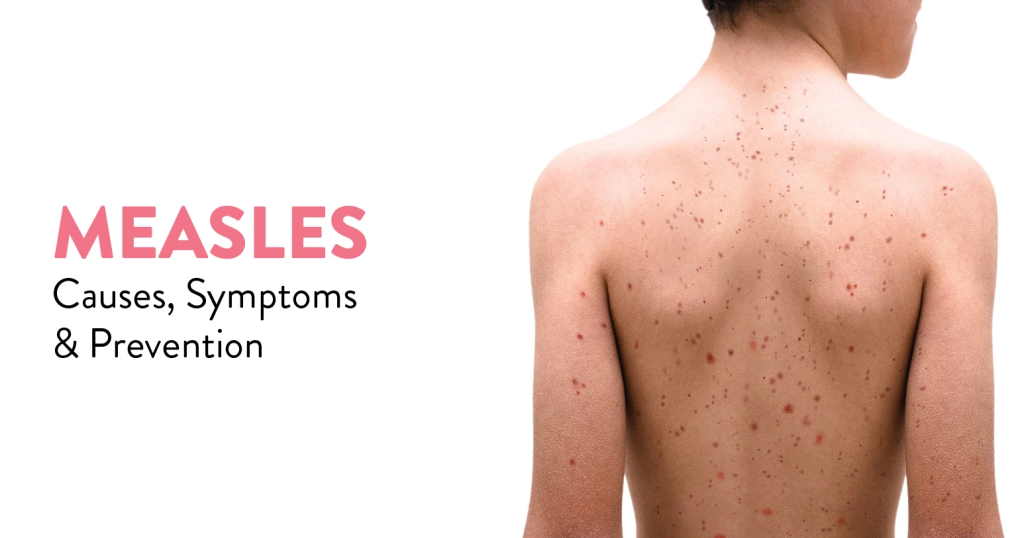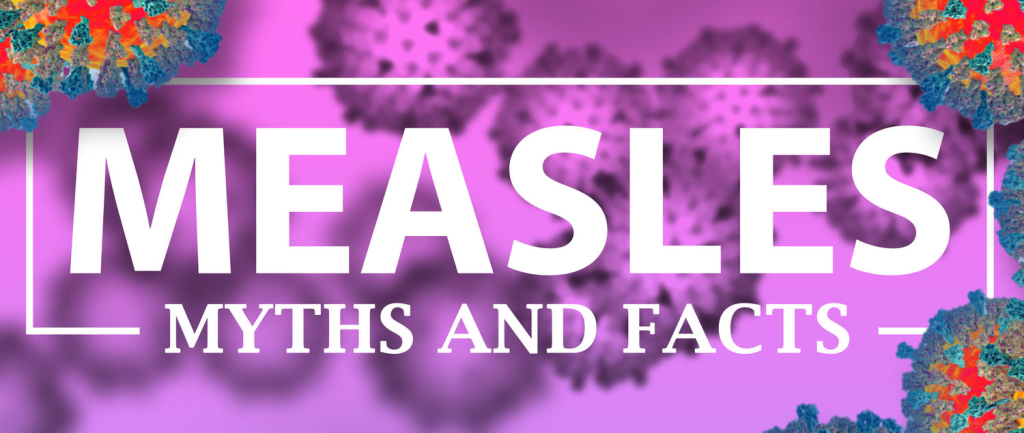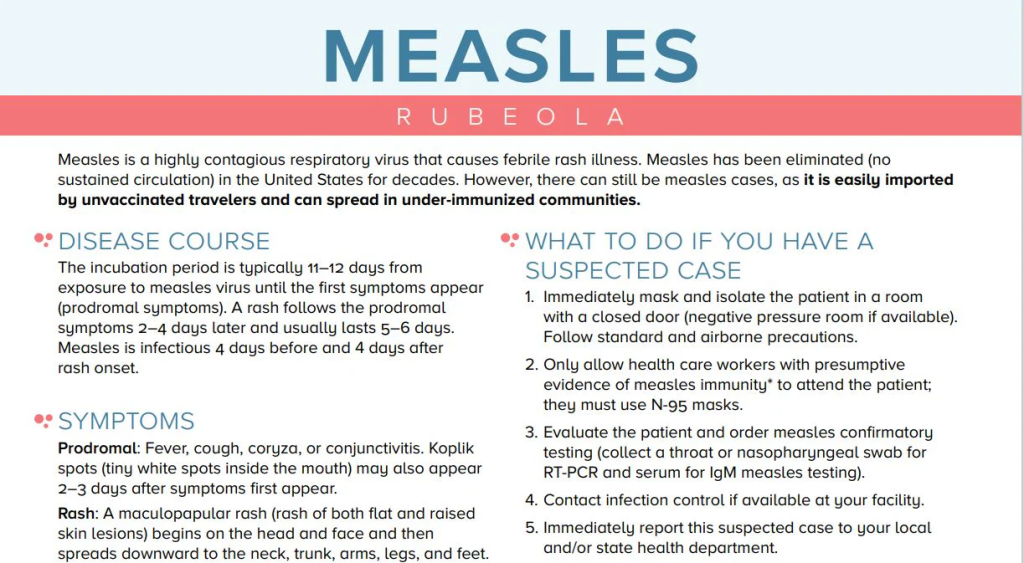
Measles is a highly contagious viral disease that has affected humanity for centuries. While modern vaccines have reduced its prevalence, outbreaks still occur, particularly in regions with low immunization rates. This guide explores the causes, symptoms, and treatments for measles while dispelling myths to promote accurate understanding.
Causes of Measles
Measles is caused by the measles virus, a member of the paramyxovirus family. The virus spreads through respiratory droplets when an infected person coughs, sneezes, or breathes near others. Low vaccination coverage and weakened immune systems are significant contributors to outbreaks.
Indications of Measles
Early indicators include a high fever, runny nose, cough, and red eyes. A hallmark sign is Koplik’s spots—tiny white spots inside the mouth. These often appear before the characteristic red, blotchy rash spreads across the body.
Symptoms of Measles
- Early Stage: Fever, dry cough, sore throat, runny nose.
- Later Stage: Red rash, Koplik’s spots, conjunctivitis, fatigue, and body aches.
- Complications: Pneumonia, encephalitis, and ear infections, especially in children under five and adults over 20.
Prevention Strategies of Measles
- Vaccination: The MMR (measles, mumps, rubella) vaccine is highly effective.
- Herd Immunity: Ensuring widespread vaccination prevents community outbreaks.
- Hygiene Practices: Covering mouth and nose while coughing or sneezing.
- Quarantine Measures: Isolating infected individuals reduces transmission.
Myths and Facts About Measles

- Myth: Measles is a harmless childhood illness. Fact: Measles can cause severe complications, including brain damage.
- Myth: Vaccines cause autism. Fact: Extensive research confirms no link between vaccines and autism.
Treatments and Therapy
While no specific antiviral treatment for measles exists, supportive care can alleviate symptoms and prevent complications.
Medication-Based Treatments
- Antipyretics for fever.
- Vitamin A supplements to reduce severity.
- Hydration therapy for dehydration caused by fever and diarrhea.
Surgical Treatments
Surgical intervention is rare but may be required for complications like tracheal obstructions.
Physical Therapy and Rehabilitation
For complications like encephalitis, rehabilitation may include motor skills retraining and cognitive therapy.
Lifestyle and Behavioral Interventions
- Nutritious diet to strengthen immunity.
- Rest to allow the body to recover naturally.
Alternative and Complementary Medicine
- Herbal teas for soothing cough.
- Probiotics to support gut health during recovery.
Psychotherapy and Counseling
Emotional support for families coping with severe cases or fatalities.
Immunizations and Vaccines
Ensuring timely administration of the MMR vaccine.
Stem Cell Therapy
While not directly applicable to measles, ongoing research explores how stem cell therapy might address measles-related complications.
Gene Therapy
Future advancements may include gene editing techniques to enhance immune responses.
Top 20 FAQ on Measles

1. What is measles?
Measles is a highly contagious viral infection caused by the measles virus, characterized by fever, cough, runny nose, conjunctivitis, and a distinctive red rash.
2. How is measles transmitted?
Measles spreads through respiratory droplets when an infected person coughs or sneezes. It can also spread via contact with contaminated surfaces.
3. What are the first signs of measles?
Early symptoms include fever, cough, runny nose, red watery eyes, and tiny white spots inside the mouth (Koplik’s spots).
4. How effective is the MMR vaccine?
The MMR (measles, mumps, rubella) vaccine is about 97% effective after two doses in preventing measles.
5. Can adults get measles?
Yes, adults who are unvaccinated or have not had measles before can contract the disease.
6. Is measles fatal?
In severe cases, measles can be fatal, particularly in young children, malnourished individuals, or those with weakened immune systems.
7. What complications can arise from measles?
Complications include ear infections, pneumonia, encephalitis, and in rare cases, subacute sclerosing panencephalitis (SSPE), a fatal brain condition.
8. Can measles be prevented without vaccines?
Vaccination is the most effective prevention method. Basic hygiene and avoiding contact with infected individuals may reduce transmission but are not foolproof.
9. What should I do if I suspect measles?
Isolate the individual, consult a healthcare provider immediately, and notify local health authorities to prevent further spread.
10. Are there any long-term effects of measles?
In some cases, measles can cause long-term complications such as hearing loss, neurological damage, or immune suppression.
11. How long does the rash last?
The measles rash typically lasts 5–6 days and fades in the same order it appeared.
12. Can measles occur after vaccination?
It’s rare but possible, especially if the person has received only one dose of the vaccine or has a weakened immune system.
13. What is herd immunity?
Herd immunity occurs when a large percentage of the population is immune to a disease, making its spread unlikely and protecting those who are unvaccinated.
14. How is measles diagnosed?
Measles is diagnosed based on symptoms, rash appearance, and confirmed through laboratory tests like blood tests or throat swabs.
15. What are Koplik’s spots?
Koplik’s spots are tiny white spots with bluish centers that appear inside the mouth and are an early sign of measles.
16. Is measles seasonal?
Measles outbreaks are more common in late winter and spring, although it can occur year-round.
17. Are there home remedies for measles?
While there’s no specific home remedy to cure measles, rest, hydration, and soothing fever with medications like acetaminophen can help alleviate symptoms.
18. Can pregnant women get vaccinated?
Pregnant women should not receive the live MMR vaccine. Vaccination should occur before pregnancy or after delivery.
19. How is measles treated in children?
Treatment focuses on symptom management, including fever control, hydration, and vitamin A supplementation to reduce complications.
20. Can measles recur?
Once a person recovers from measles, they typically gain lifelong immunity, making recurrence extremely rare.
Conclusion
Measles remains a global health concern despite the availability of vaccines. Timely immunization, public health awareness, and dispelling myths are critical for its eradication. If you or your loved ones suspect measles exposure, consult a healthcare professional promptly. Together, we can prevent outbreaks and protect communities.
Related video:
Find Trusted Cardiac Hospitals
Compare heart hospitals by city and services — all in one place.
Explore Hospitals